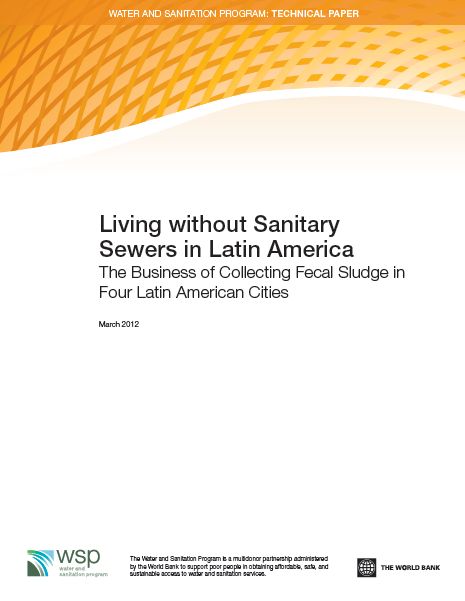Living without sanitary sewers in Latin America - The business of collecting fecal sludge in four Latin American cities
Rojas, F. (2012)

Published in: 2012
Publisher:
World Bank, Water and Sanitation Program (WSP), Latin America and the Caribbean
Author:
Rojas, F.
Uploaded by:
SuSanA secretariat
Partner profile:
common upload
5824 Views
203 Downloads
Location of library entry
Content - Summary
The present report spotlights the major challenges and the opportunities that lie ahead in fecal sludge management and summarizes the findings from four case studies that describe the current and potential market for sludge removal, collection, and disposal in peri-urban areas. These areas,
inhabited by a variety of ethnic, religious, and cultural groups,
typically struggle with high population density, insufficient land use planning, high citizen insecurity, and low coverage with basic services.
The report demonstrates how technical, financial, environmental, social, regulatory, political, and institutional factors interact to create supply and demand in four markets where coverage with sanitary sewerage services is below the regional average, namely: Santa Cruz (Bolivia), Guatemala City (Guatemala), Tegucigalpa (Honduras), and Managua
(Nicaragua).
Even though households in the four areas studied have onsite sanitation systems (latrines and toilets), fecal sludge and excreta often drain into the streets, and there is no control or treatment of the sludge, posing a risk for public health and the environment.
Bibliographic information
Rojas, F. (2012). Living without sanitary sewers in Latin America - The business of collecting fecal sludge in four Latin American cities. World Bank, Water and Sanitation Program (WSP), Latin America and the Caribbean
Filter tags
English Faecal sludge treatment processes Latin America & Caribbean Urban (entire city)















